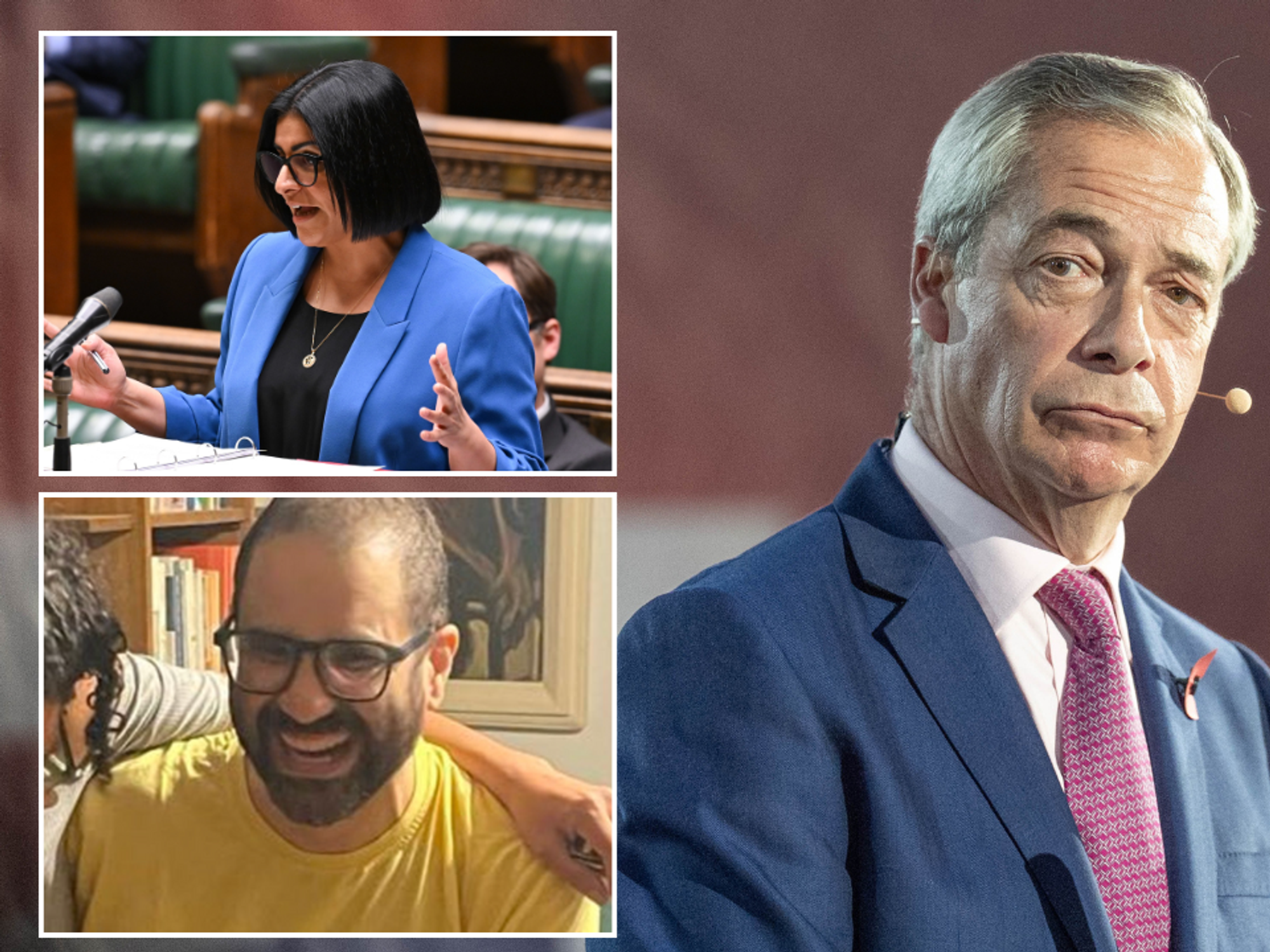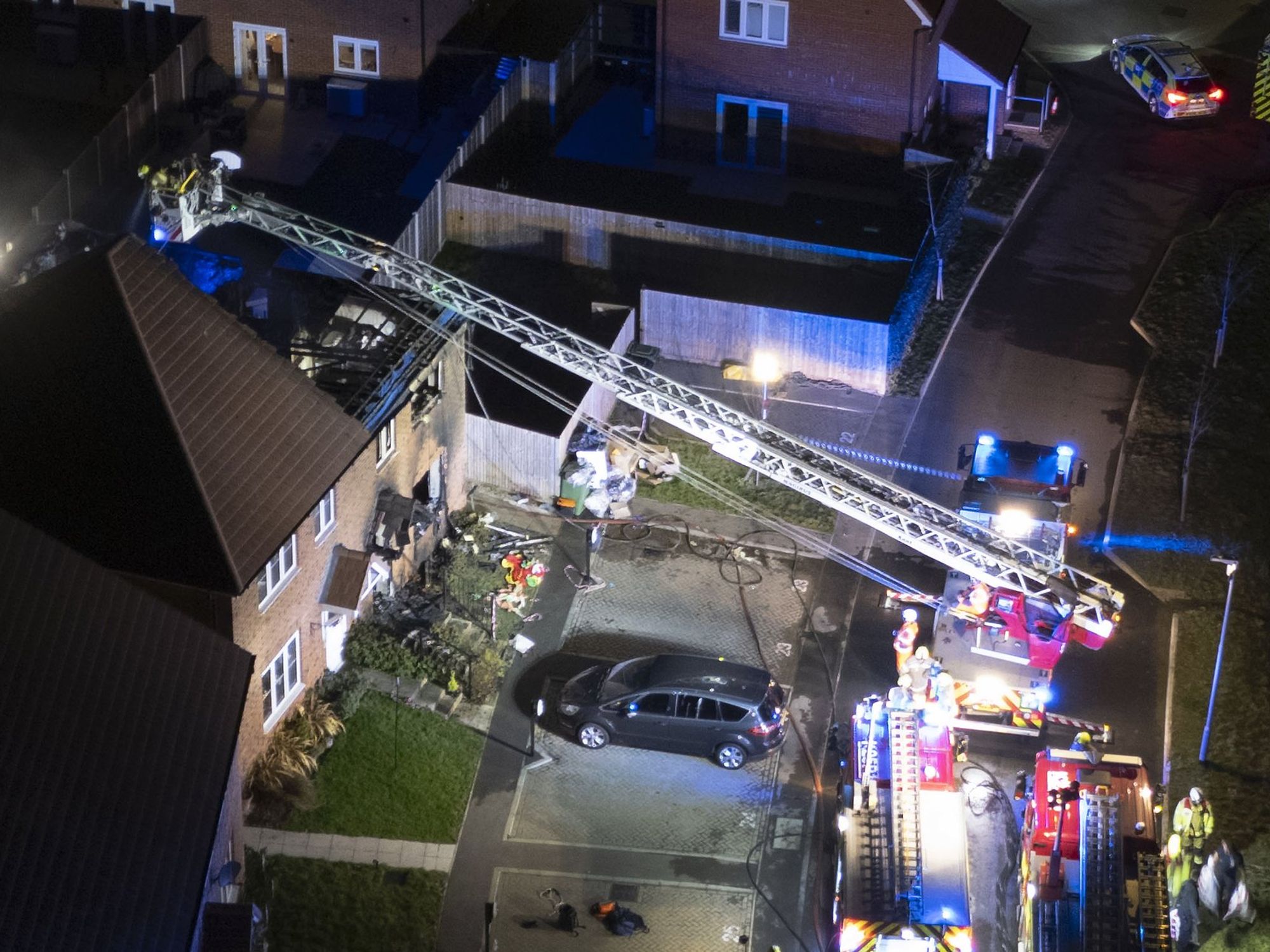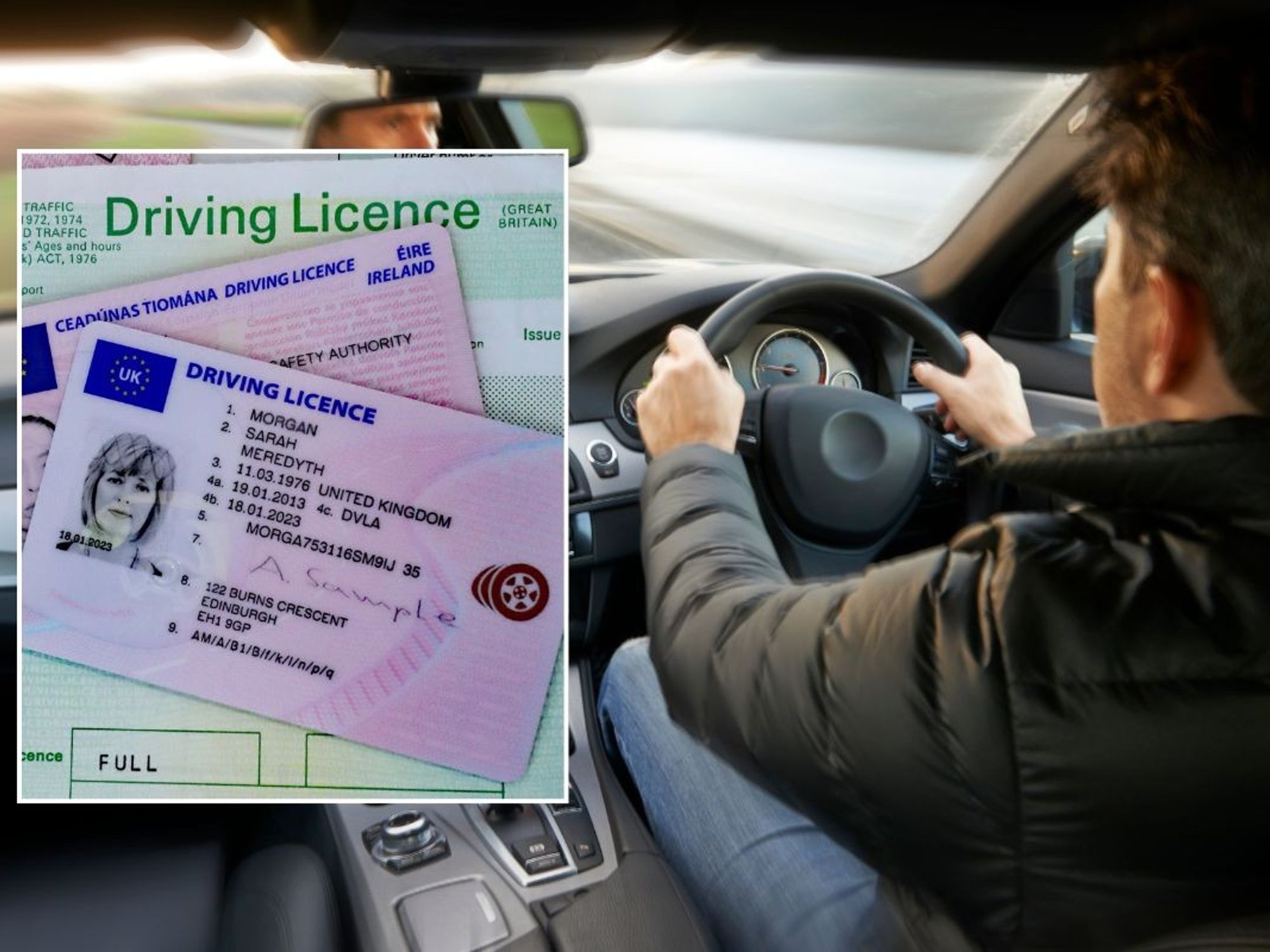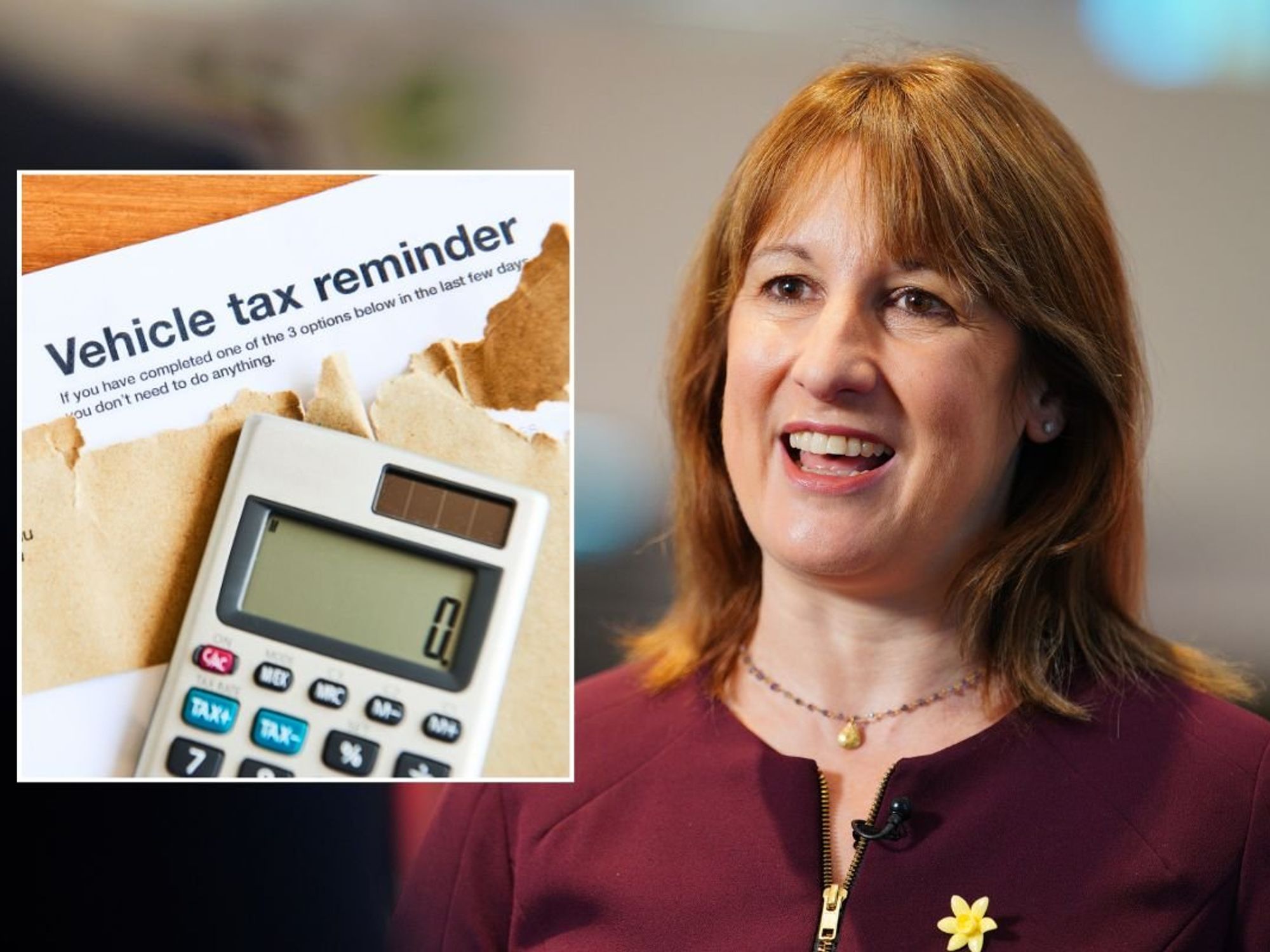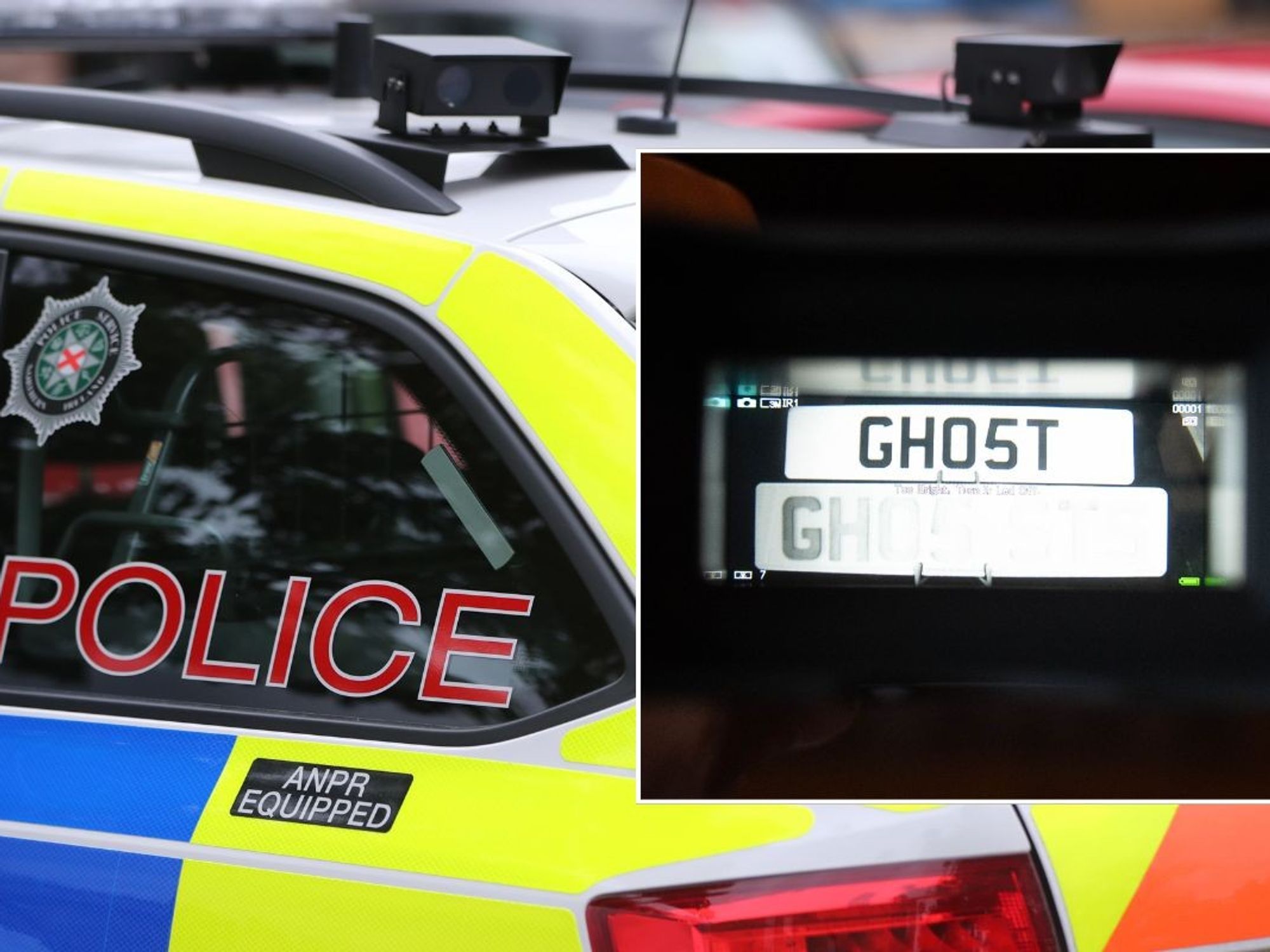William admits to learning Welsh on Duolingo two years after becoming Prince of Wales
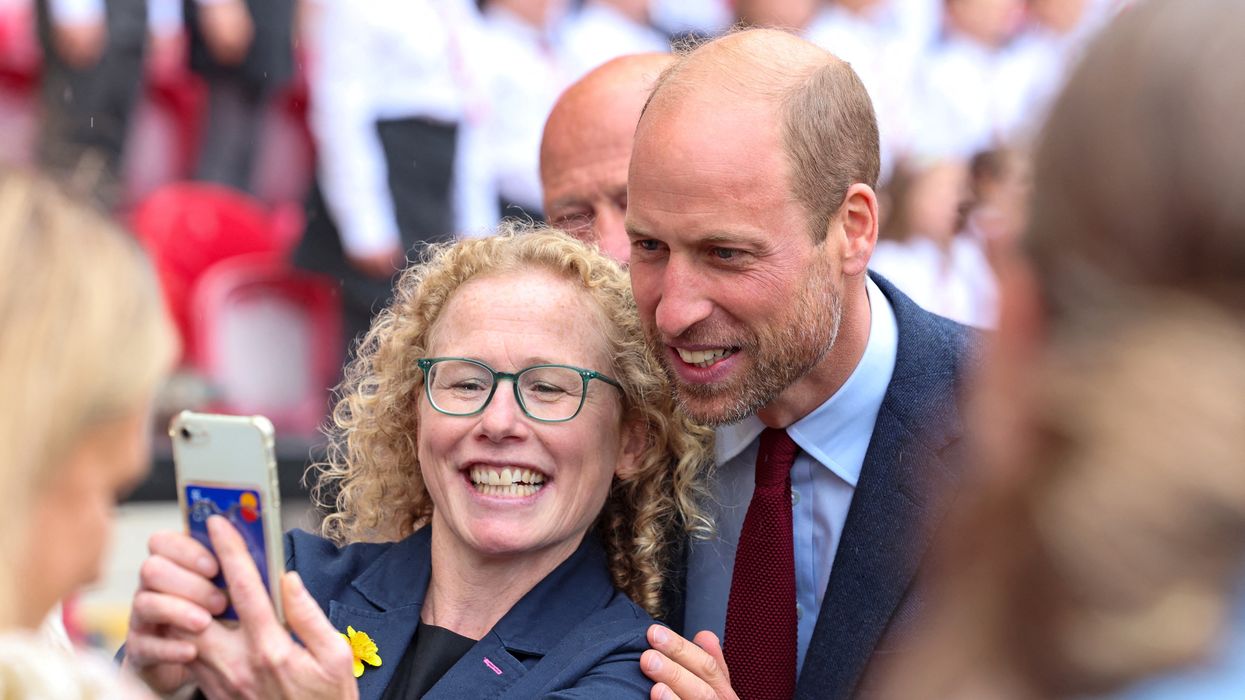
William admits to learning Welsh on Duolingo two years after becoming Prince of Wales
|Reuters

The father-of-two is trying to learn the language 'phonetically'
Don't Miss
Most Read
Prince William has admitted to learning Welsh on the Duolingo app, two years after becoming the Prince of Wales.
William and Kate were titled the Prince and Princess of Wales once King Charles became the monarch in 2022, after being known as the Duke and Duchess of Cambridge since their 2011 wedding.
Prince William, 42, who was sporting his new fuller beard, arrived at a primary school on Tuesday to meet pupils who had taken part in the 2024 Urdd Eisteddfod, a week-long festival celebrating Welsh language and culture.
The prince revealed he had Duolingo, the language learning app, and was trying to learn Welsh “phonetically”.
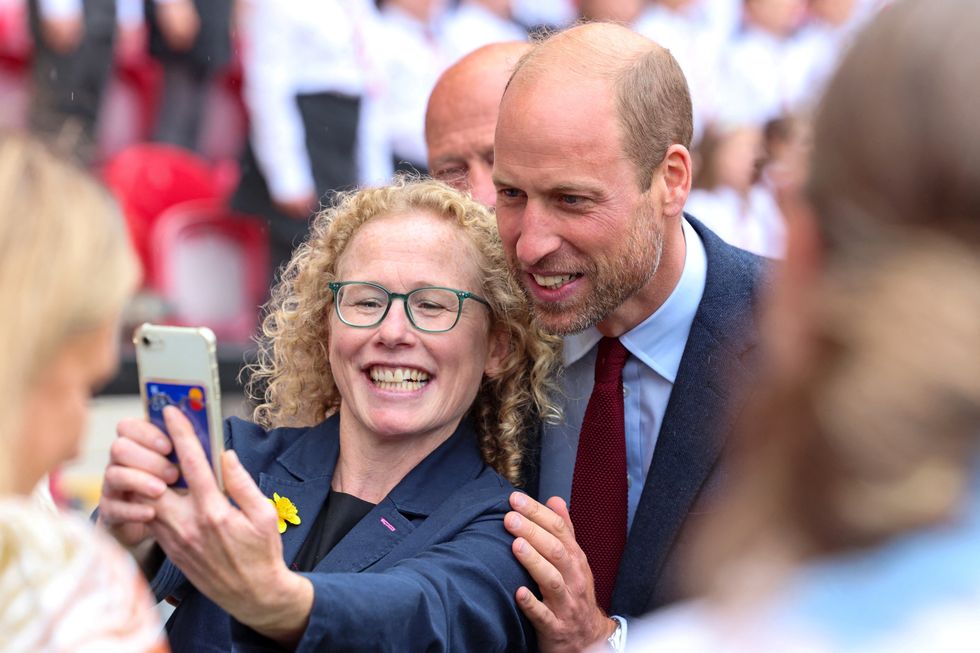 William admits to learning Welsh on Duolingo two years after becoming Prince of Wales | Reuters
William admits to learning Welsh on Duolingo two years after becoming Prince of Wales | ReutersWilliam was met by a school representative as he arrived at Swiss Valley Community Primary School.
"Bore da," he said, which means "Good morning" in Welsh.
William was treated to performances by some of the pupils who had taken part in the festival, including 10-year-old Ruby Davies who won the individual reciting competition for Welsh learners.
One local, Diane Griffiths, told him: "It was so good to see Catherine looking well, you have a beautiful family."
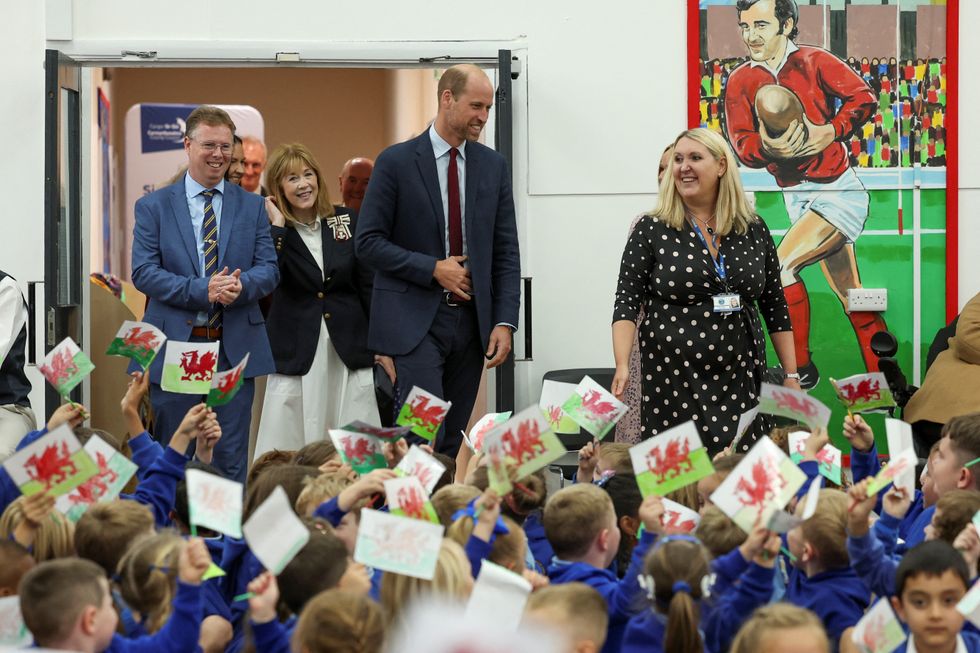
Prince William arriving at Swiss Valley Community Primary School
|Reuters
William replied: "Diolch," meaning "Thank you."
The father-of-two said during his visit to Llanelli that he was trying to pick up some Welsh phrases “phonetically”.
The Prince of Wales said: “It’s not an easy language to learn. It’s quite tricky.
"I try to learn it phonetically and then get the pronunciation right.”
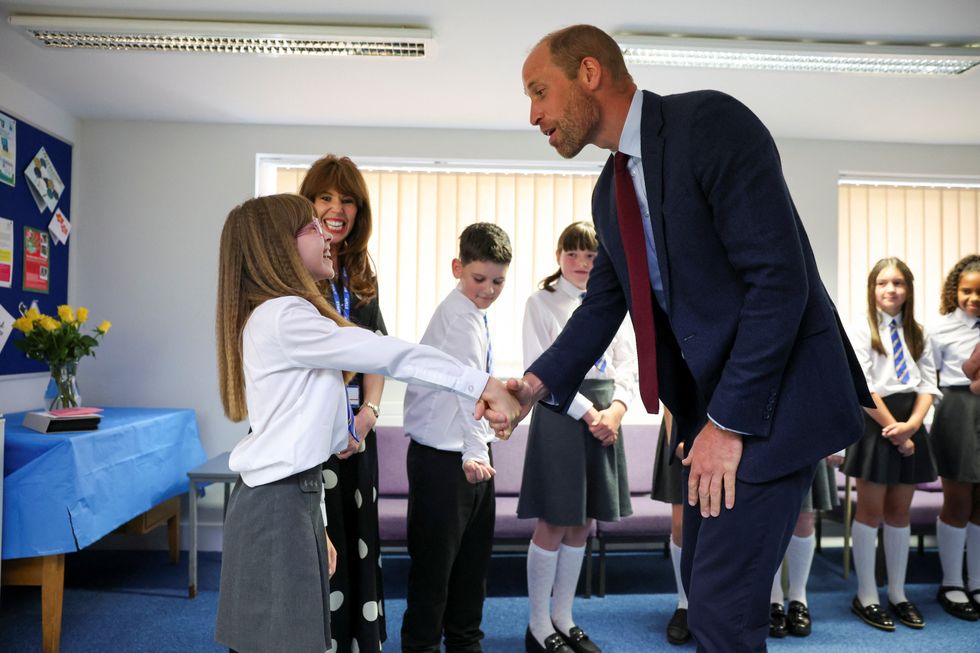
Prince William meeting 10-year-old Ruby Davies who won the individual reciting competition for Welsh learners
|Reuters
LATEST ROYAL NEWS:
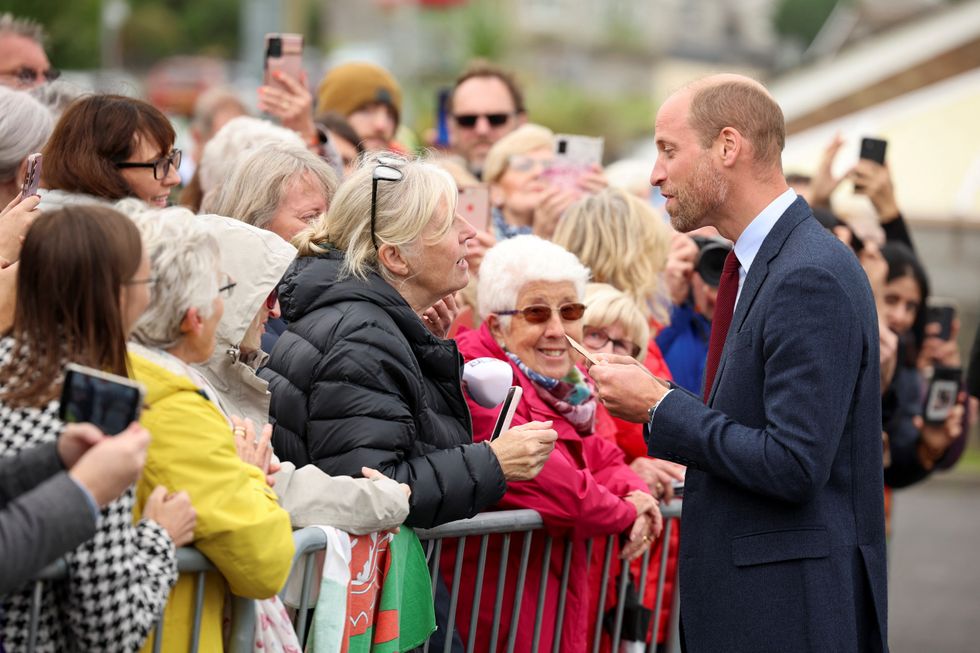
Prince William greeting and speaking to Welsh royal fans
|Reuters
He remarked that the children’s singing was “beautiful”.
William also said that he attempts to “lean into” Welsh phrases by offering a cheery “Bore da” (good morning) or similar.
He told the children following their performance: “Da Iawn,” meaning “well done”.





